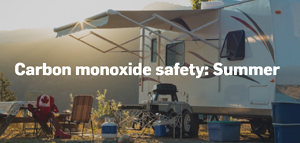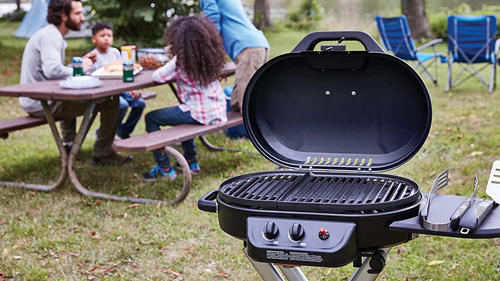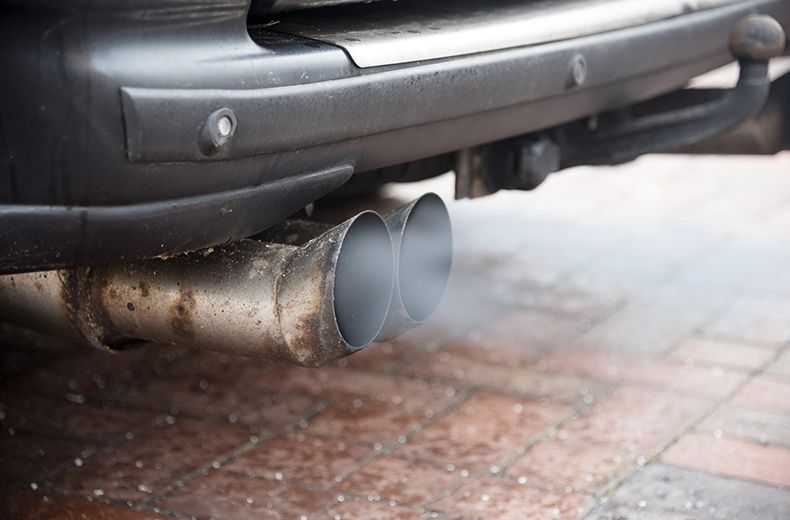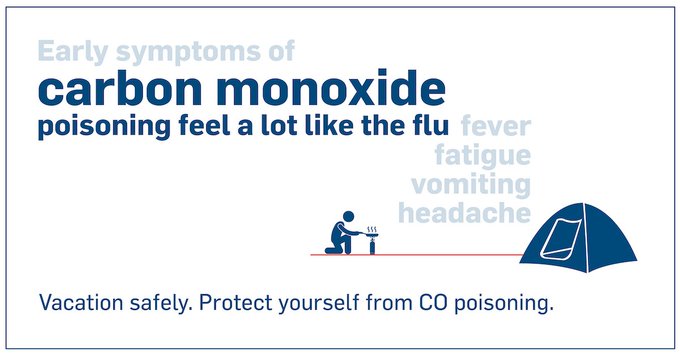Tuesday July 27, 2021 | VICTORIA, BC [Updated August 6, 2021]
by Jalen Codrington | Island Social Trends
An increased risk of carbon monoxide exposure is being warned of ahead of the upcoming BC Day long weekend.
In the coming days, many British Columbians will be retreating to cabins, campgrounds, boats, and RV’s across the province. Although these destinations are a welcome break from the day-to-day bustle, they can also come with an increased risk of carbon monoxide exposure.
Technical Safety BC (TSBC) would like to encourage British Columbians to familiarize themselves with the signs, symptoms, and sources of the “silent killer.”
What’s the danger?
Carbon monoxide (CO) is a colourless, odourless, tasteless gas that is produced by burning fuel.
Poorly ventilated appliances and engines — particularly in enclosed spaces — may allow carbon monoxide to accumulate to dangerous levels.
Once levels of the gas build up in the bloodstream, it can result in serious injury or death.
Signs of carbon monoxide poisoning include:
- Headaches and confusion
- Vomiting and weakness
- Dizziness and chest pains
- Shortness of breath
- Blurred vision
- Loss of consciousness
BBQ’s, furnaces and more:
In recent years, TSBC has recorded fatalities at remote vacation properties where owners had installed propane-burning appliances.
Common sources of carbon monoxide can include portable barbecues, furnaces, propane refrigerators, hot water tanks, lanterns, fireplaces, and vehicle exhaust.
One of the individuals affected by a tragic incident of carbon monoxide exposure, Jessica Taschner, has a message for British Columbians this summer:
“My life has been forever changed by carbon monoxide exposure. It cost me my partner, my independence, and it has changed my life in every way.
“The biggest lessons I learned from my accident is the importance of knowing the symptoms of carbon monoxide poisoning, the need to check on friends by waking them when they are feeling unwell, and how crucial it is that people have a carbon monoxide alarm with them when visiting recreational properties.”
Preventing CO exposure:
Dean Schmitke, Incident Investigation Senior Safety Officer at Technical Safety BC, has some helpful tips to prevent carbon monoxide exposure:
- Pack a battery-operated carbon monoxide alarm and use it when visiting rental properties, camping, or boating. When possible, ensure vacation rental lists a carbon monoxide alarm on-site.
- Only use portable fuel-burning appliances outdoors.
- Never block exhaust outlets.
- Know the signs of carbon monoxide exposure in humans and pets.
If you believe you’re being poisoned by carbon monoxide, or if your carbon monoxide alarm goes off:
- Turn your appliances off
- Get everyone outside, including pets
- Call 911, or your local emergency number
- Seek medical attention.
Additional information on the risks of carbon monoxide exposure while on summer vacation can be found on the Technical Safety BC website.







